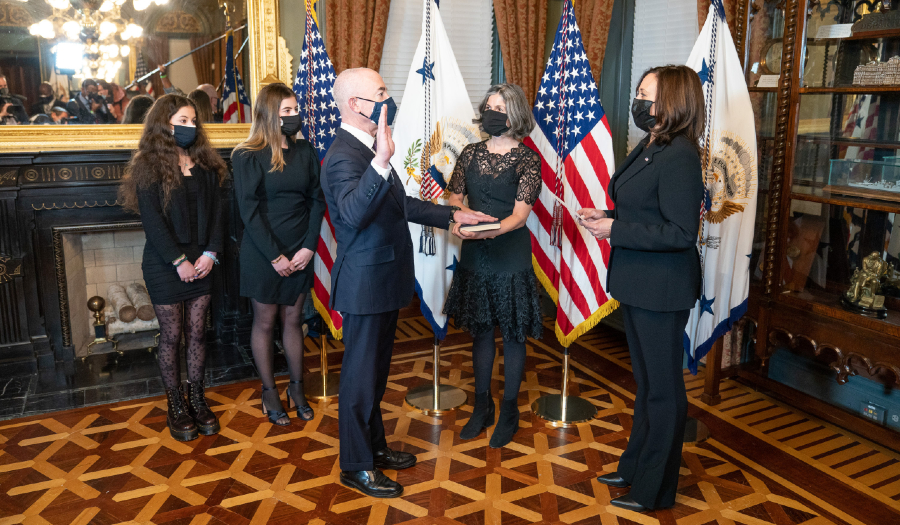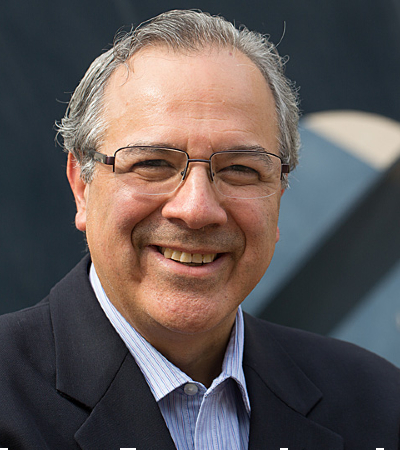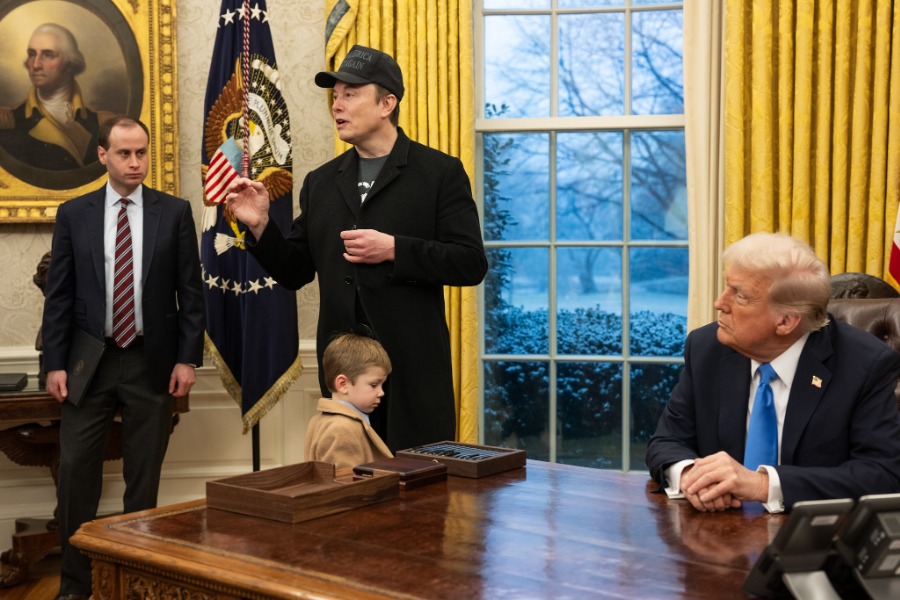Empowering Diaspora Americans in National Security: Good Politics, Better Foreign Policy
The U.S. government would benefit from drawing more on the knowledge and experiences of diaspora Americans who are disadvantaged by antiquated hiring practices.

Published by The Lawfare Institute
in Cooperation With

The United States faces enormous global challenges that cannot be met effectively if its foreign policy apparatus is organized and staffed in the same manner as it has been in generations past. The State Department, Department of Defense and other agencies with national security mandates would do well to consider the scholarship on how racial, gender, cognitive and other forms of diversity are improving performance in all sectors. As a strategic matter, harnessing the talents of diaspora Americans—first- or second-generation immigrants to the United States—in executing foreign policy and national security agendas should be as high a priority as any other diversity effort of the incoming Biden administration. These public servants have backgrounds that present personal advantages for international engagement and perspectives that can contribute to more innovative policies, while also making the U.S. government more representative of its population. The Biden administration, and Washington in general, would be wise to build on the steps the Obama administration took to begin to empower diaspora Americans in foreign policy and national security—a legacy that lapsed during four years of the Trump administration.
In his Financial Times essay “Wanted: A Brzezinski for the post-Trump World,” Edward Luce makes the point that “[a]s a fluent Russian-speaking Polish immigrant, Brzezinski’s knowledge of the world far outweighed that of the ‘Georgetown set,’ the coterie of affluent, home-grown friends and rivals who served as the architects of early U.S. Cold War policy.” The same could be said of the Madeleine Albrights, Adewale Adeyemos, Tammy Duckworths, and Vali Nasrs, as well as the next generation of diaspora Americans, foreign and native born, ready to step into careers of national service. Harnessing the talents, cultural competencies and language skills of these patriotic Americans can improve the effectiveness of U.S. foreign policy while sending a powerful message at home and abroad that in a great nation, careers in national security are open to people of all backgrounds and not reserved as the province of an elite and unrepresentative few.
International diplomacy scholar Alan Henrikson observed in 1980 that “[s]tatesmen respond to the world as they perceive and imagine it—which may not be the way the world really is.” One solution to address the strategic and moral challenges in foreign policy is to empower statespeople who have a different “mental map” of the world. These individuals can help the United States to regain its competitive edge globally while promoting more just statecraft. To that point, Lukogho Kasomo and Jim Ngokwey, co-founders of the U.S.-based Congolese Diaspora Impact Summit, write in Foreign Policy that the lived experiences, knowledge, and resources of diaspora communities are overlooked to the detriment of U.S. interests, and that in this moment of national reckoning on race, addressing a lack of diversity at policy schools, at think tanks, and in government can help solve moral and strategic questions in U.S. foreign policy.
Diaspora Americans recruited to careers in national service bring not only the usual academic and leadership qualifications but also hard skills and cultural competencies that are costly to replicate through diplomatic, military, or intelligence training and education. Knowledge of national security tradecraft and management skills can be learned, and indeed scholars of policymaking have sounded the alarm over the need to regain U.S. policymaking competence. However, added cultural insights and instincts developed over a lifetime of lived experience will contribute immeasurably to the effectiveness of U.S. foreign policy teams. Americans who have significant heritage ties to other countries are among those best positioned to help the United States’s national security establishment understand and respond to challenges and opportunities across the globe.
The United States’s immediate foreign policy challenges underscore the strategic advantage of improved global cultural competency. Empowered ranks of diaspora foreign policy expertise strengthen the community of democracies facing China’s rise and Russia’s revanchism. Instead of embracing these advantages, the Trump administration tokenized people of color and even questioned the loyalty, belongingness, and Americanness of entire communities of faith and color. Individuals from these communities continue to serve their country, despite facing stereotypes, microaggressions, and other structural barriers to career advancement and retention.
In staking out a “foreign policy for the middle class” as an organizing principle for the Biden administration, Jake Sullivan, Biden’s national security adviser, speaks of how “[w]e’ve reached a point where foreign policy is domestic policy, and domestic policy is foreign policy.” For many diaspora communities, the wall between domestic and foreign policy has always been thin. In Florida, for instance, U.S. policy in Venezuela ranked alongside health care and the economy as one of the top issues for diaspora populations from the Caribbean Basin. Empowering diaspora Americans is not just sound policy. It makes for a healthier democracy and strengthens U.S. institutions. Having more diverse communities shape and contribute to U.S. foreign policy reinforces social cohesion and buy-in to the decisions made in Washington. The presidential campaigns of the top 2020 Democratic primary candidates embraced the benefits diaspora Americans can provide to approach such issues and fielded foreign policy teams with working groups often co-led by diaspora Americans. More visibly empowering these individuals to conduct foreign policy outreach to communities infuses important symbolism into campaigns but also adds nuance to candidate platforms that better reflects the policy preferences of these Americans. It also communicates clearly to these communities why political participation matters and that careers in service to their country are open and impactful possibilities.
But there is clearly much work ahead to make U.S. foreign policymaking more representative of the country’s diversity. In 2011, Secretary of State Hillary Clinton hosted the first Global Diaspora Forum, recognizing the vitality of the U.S. diaspora participation in aid, development and citizen diplomacy. Rajiv Shah, then-Administrator of the United States Agency for International Development, estimated that the number of diaspora Americans constitutes one-fifth of the U.S. population. What’s more, people of color are projected to represent the majority of the U.S. population by 2044. The United States is already behind where it should be in recruiting the best and brightest of these Americans to careers as foreign policy and national security leaders. The Obama administration’s Presidential Memorandum on Promoting Diversity and Inclusion in the National Security Workforce, in making the strategic case for diversifying personnel across the spectrum of national security agencies, cited data showing that the national security community is far less diverse than other federal agencies. Yet still, in 2020, Hispanic Americans and Asian Americans represent a mere 7 percent and 6 percent, respectively, of the U.S. Foreign Service. Improving this underrepresentation is a supply and demand challenge. Efforts like assigning ambassadors in residence to minority-serving colleges and universities can help, but so will seeing more diaspora Americans serving in these roles and rising to leadership positions.
This seismic effort is not dependent on government action alone. In recent years, numerous initiatives have contributed to the movement to bring diverse voices to the forefront of foreign policy. A handful of think tanks and coalitions such as the Diversity in National Security Network, the Leadership Council of Women in National Security, Out in National Security and Women of Color Advancing Peace and Security launched programs to help open doors to careers in foreign policy. These initiatives ensure the career pipeline is accessible to individuals from various backgrounds by providing pathways for advancement and, most importantly, by underscoring the notion that diverse voices should be celebrated. Mentorship programs and leadership training from these initiatives grant individuals the networks, confidence and hard skills needed to enhance their ability to land and succeed in civil service and political appointment positions. Rhetorically, Washington seems to be mostly aligned on this issue as a priority—that is, except for the Trump administration, which suspended agency diversity training. However, more emphasis on empowering disenfranchised and underrepresented communities, and especially diaspora Americans, can begin to meet the urgency of U.S. foreign policy challenges.
Structurally, this means including diaspora Americans higher in the chain of decision-making. The Biden administration, which has already revoked Trump’s executive order banning federal diversity training, should lean into empowering more individuals with country ties for senior roles on country and regional teams. This will mean revising vestiges of Cold War-era national security hiring—and modern gatekeeping—practices. Country ties, and specifically foreign contacts, have often prohibited diaspora Americans from seeking employment in the field or obtaining the necessary security clearances. This feature of the U.S. public sector’s hiring for sensitive positions is counterproductive and punishes individuals for having critical knowledge and experiences, disadvantaging rather than advancing U.S. national security. Additionally, diaspora Americans should be well represented across the senior leadership of bureaus, embassies, country desks and agencies, not pigeonholed as linguists and regional specialists. They are also experts of strategic and thematic areas, from defense planning and arms control to global health and public diplomacy. Diaspora Americans should also be well represented in the personnel hiring apparatus, including in the White House Presidential Personnel Office (PPO) and the White House liaisons across national security agencies. This will be critical to ensuring that individuals with diverse lived experiences are well placed to elevate diaspora American resumes in the political appointment and applicant pool.
That Biden has already made strides in assembling an administration that “looks like America”—from his Cabinet to the National Security Council to his incoming advisers and special assistants—bodes well for what we believe is needed in the foreign policy and national security field. Empowering more deputy assistant secretaries, senior directors and senior advisers from these communities is essential to meet the needs of these critical missions. To ensure a steady pipeline for political appointments, the government must take a hard look at the security clearance process and implicit biases posed in these investigations. Embracing diversity in lived experience, rather than viewing it as a liability, would break down a major barrier to entry for candidates with family ties in critical areas. Leaning in to the strategic advantages provided by diaspora Americans will require a cultural shift in the government bureaucracy, including a willingness to reform structural dynamics in consideration of new voices ready and motivated to help address the complex global challenges facing the United States.







